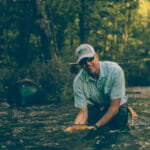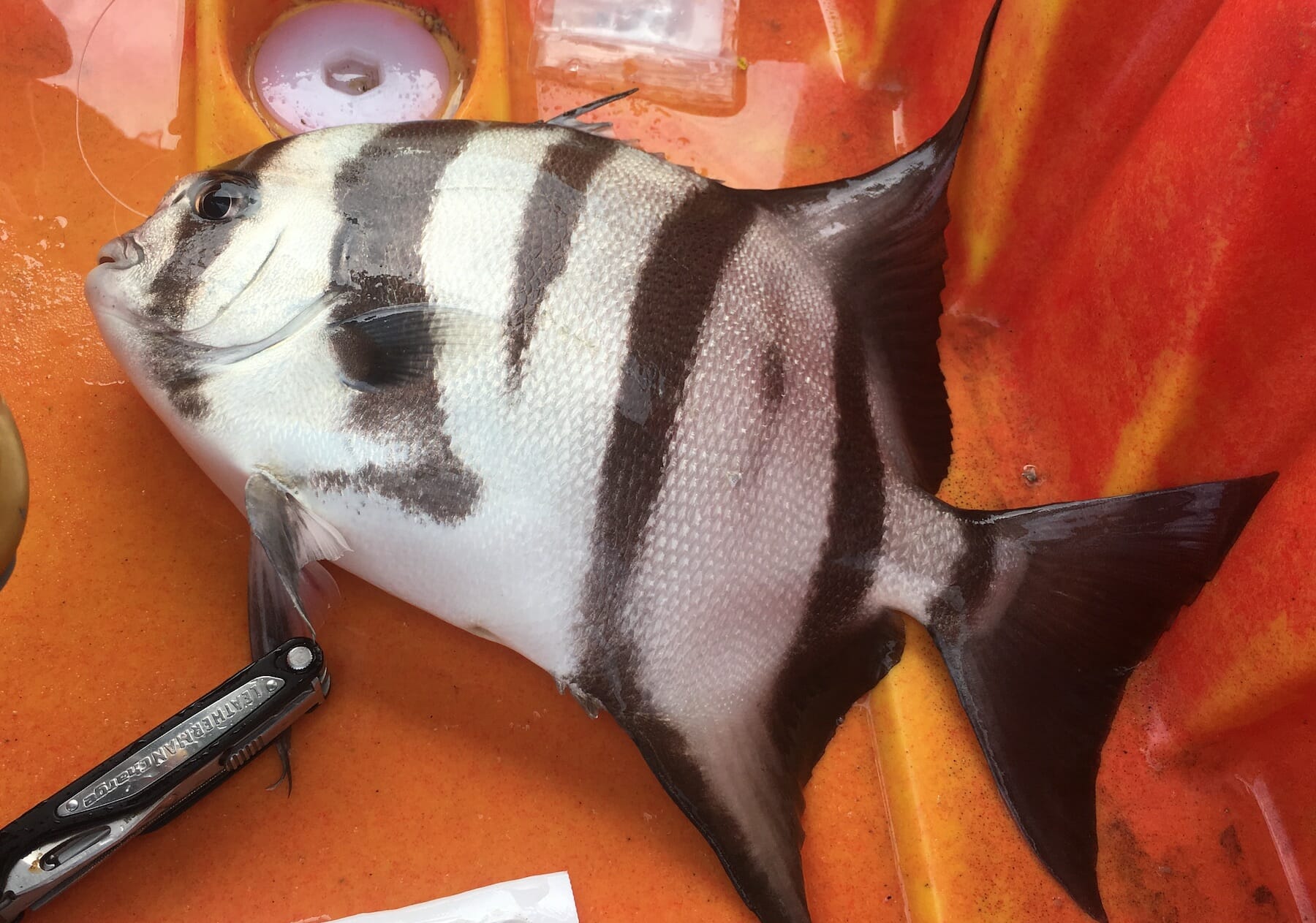Platter-shaped spadefish are incredibly strong, and great in fish tacos!
By Mark Taylor
During an interview a number of years ago with a very successful tournament bass angler, the man leaned in and asked in a hushed tone, “Can we go off the record?”
“I guess,” I replied, expecting him to give me some inside info on a new spinnerbait or maybe to say something negative about one of his rivals.
He nodded.
“I actually hate bass fishing,” he said.
Bass were too fickle, he complained. And, yes, he was well aware that because he was better than most at figuring them out they provided a pretty good living for him.
“I’d much rather fish for saltwater fish,” he continued. “They’re big. They’re strong. They’re not smart. And they’re good to eat.”
I sometimes think back to that statement when I’m on a trout stream, struggling and on the verge of saying, “I hate trout fishing.”
Fortunately, I live close enough to the Atlantic Coast that I can get a saltwater fix at least a couple times a year.
Not that fishing in the salt is always like shooting fish in a barrel. Because the ocean is, well, big.
On a trout stream you pretty know the fish are there, even if they’re not cooperating. In coastal fishing, the fish simply might not be there.
Take, for instance, the surf near Duck, N.C., during our family recent vacation. For the first few days I and a fair number of other vacations who like to fish would dutifully haul our fishing gear to the beach in the morning and evening.
We might as well have been casting into the Dead Sea. We caught nothing. Literally, nothing.
It was more frustrating than fishing over brutally picky trout. I gave up after three days.
The morning we left, a couple of days of water-warming onshore winds, I saw, for the first time, small baitfish in the surf. And I saw a guy catch an actual fish, a small flounder. I’m sure the surf action turned around. So sometimes it’s simply a matter of waiting for the fish to show up.
Or you can go looking for them, and the place to start is usually some kind of structure, such as a jetty, pier or even a buoy.
In Duck there is a great piece of structure, a sturdy pier that juts several hundred yards out into the Atlantic. The barnacle- and mussel-encrusted pilings form the foundation of a fertile ecosystem.
Because it is research pier controlled by the Army Corps of Engineers, it is not open for fishing. Anglers can fish it, but they have to get to by boat. And because the nearest ramp for an actual boat is dozens of miles away, the only craft you’ll see around the pier are kayaks.
I’m not burning the spot because it is hardly a secret. The guys at the local bait shop gladly talk about it. Yet it’s not like the thing is swarmed.
The nearest public beach access is about a half-mile away, so there is actual paddling involved. And then there’s the matter of getting a gear-loaded kayak through the surf.
Even on the two days I was confident trying to punch through the shorebreak in my rented Perception ‘yak, I left my Scott 8-weight on the beach because I figured I had about a 50/50 shot of capsizing and losing my gear. I made it, but when I got to the pier the swells and wind made for challenging, tiring fishing.
Not surprisingly, I didn’t see another kayak angler the entire week.
The fish weren’t thick. They were concentrated around only a handful of pilings and it took me a while to find them. But when I did, the action was good for triggerfish and spadefish.
At 2 to 3 pounds, they weren’t particularly big. But they were incredibly strong. They weren’t super smart. And they were great in fish tacos.
Was it enough to get me to say I hate trout fishing?
Nah. But the next time I’m struggling on a trout stream I expect my mind will start wander a bit toward the coast.
Mark Taylor Trout Unlimited’s eastern communications director. He is based in Roanoke, Va., about five hours from the Chesapeake Bay, where he first started saltwater fly fishing about 25 years ago.



